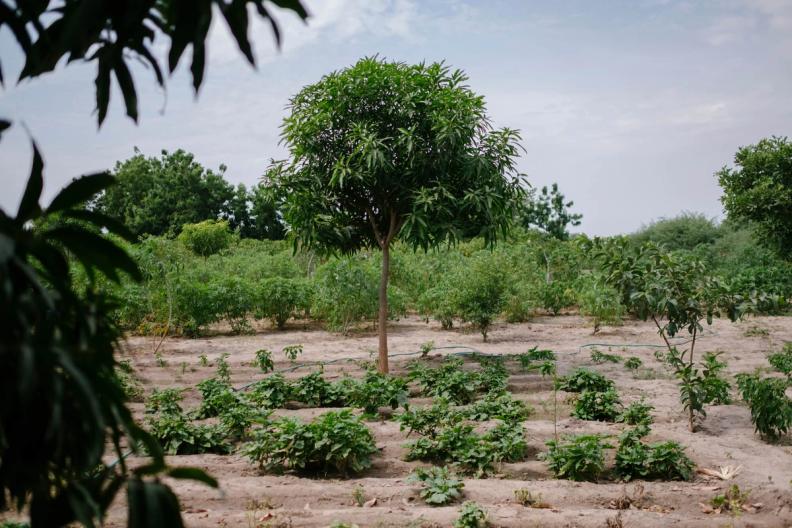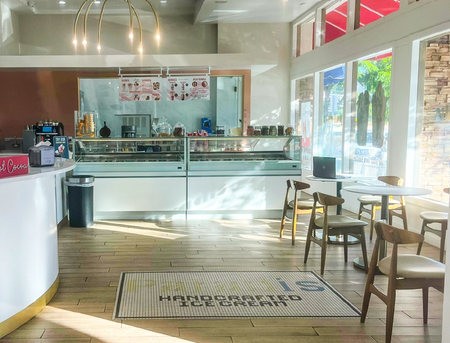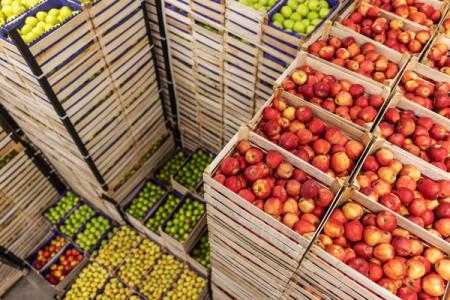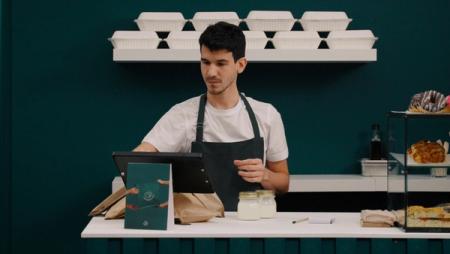Sustainable Business Spotlight: Ecosia
Sustainable Business Spotlight: Ecosia

What if we told you that a simple web search could help plant trees around the world?
Meet Ecosia, the social impact company doing just that. This incredible search engine’s mission is to create a better internet, and in their 11 years operating, have planted over 124 million trees!
You may be wondering how such a simple action can lead to such an amazing output. We caught up with Ruby Au, Head of Ecosia North America to discuss how this business model came to be, the impact Ecosia users have made on the planet, and what waste-conscious tree planting is all about. Read on below!
How did the idea of Ecosia come to be?
Our founder, Christian Kroll, studied business in school, and it got him thinking about how to connect business to social impact. He began traveling to find inspiration and meaning and ended up in Nepal. His first attempt at “Ecosia'' was actually a Nepal-based search engine called “Xabbel”, which generated funds for local NGOs. Unfortunately for Christian, he was only getting around four hours of electricity and internet access a day in Nepal – so that didn’t quite work out. However, the idea stayed with him, and he went on to Argentina, where he learned a lot about reforestation projects happening in the Atlantic Rainforest. When he realized the potential trees have for addressing the climate and biodiversity crises, as well as a myriad of social issues, Christian decided that he wanted to join the fight for forest preservation and restoration. All of these ideas came together, and Ecosia was first launched in December 2009. We’ve planted 125 million trees across all six inhabited continents since.

Broadly speaking, what does the energy use of a typical search engine mean for the environment?
Most technologies – including the devices you’re running your searches from – need electricity, and most electricity is still derived from fossil fuels such as coal, oil, or natural gas. So unsurprisingly, web search has a carbon footprint. In fact, if the internet were a country, it would rank as the third-largest consumer of electricity in the world. But often, I say this and see people start to stress about how often they do or don’t keep their computer running, or whether they remembered to unplug their monitor when it’s not being used. It’s true that these actions add up, but I think the more interesting question is how to tackle the root causes behind these problems. At the end of the day, I’m not sure people will browse less just because we’ve calculated the energy impact in kWH – it’s simply not practical. Neither would it necessarily move the needle enough when it comes to a challenge this big. In my opinion, the more interesting question is how we can transition our energy to clean, renewable sources that allow society to function without damaging our planet’s well-being.
What can you tell us about the CO2 impact of an Ecosia search?
For starters, searching with Ecosia plants trees, which in turn sequester carbon. The average Ecosia search removes 1kg of CO2 from the air. When you consider that in the context of our 15 million users, it starts adding up to a really significant impact. We also built our own solar plants, which don’t just produce enough electricity to power all Ecosia searches with renewables, but more than twice as much. Being 200% renewable means that every Ecosia search crowds out dirty energy from the grid.
Last year, this strategy helped prevent around 5,347 tons of C02 from being released due to coal energy production.
Thanks to the trees we plant and the solar farms we build, Ecosia is “carbon negative”. We believe in taking out way more CO2 from the atmosphere than we’re putting in. In Ecosia’s case, we planted over 30 million trees in 2020. In just the first 20 years of their life, these trees will sequester over 10,000 times the amount of carbon we and our suppliers emitted that year.

It’s been noted that Ecosia plants trees in regions where they’re most needed. How is that determined and what is your process for doing so in the most waste-conscious way?
We prioritize planting in “biodiversity hotspots”, which are locations that see a huge diversity of plant and animal life but are also severely threatened by human activity. These locations are particularly unique because they have high concentrations of endemic species, which are specific to that region and can be found nowhere else on Earth. To give you some idea of how important these regions are to our planet’s well-being – biodiversity hotspots make up only 2.3% of the Earth’s surface but hold more than half of the world’s plant species, and over 40% of animal species. After considering biodiversity, Ecosia narrows down planting locations based on where we have strong partners on the ground, and where trees could most benefit local communities. Our partners are responsible for providing localized planting expertise and are also actually the ones who put the trees in the ground. When it comes to waste, we really look at this on a project-by-project basis and lean on our partners for resources and advice. In one example, Trees for Humanity, our partner in Uganda, are experimenting with us on using compostable plant pots made of dried banana leaves.

What have been some of your biggest learnings about working for a sustainable business?
Ecosia is not planting trees in order to be a sustainable (or indeed regenerative) company – rather, Ecosia is planting trees because it is a regenerative company. In other words, we view regeneration as something that is built into the DNA of how we make decisions as an organization. It impacts not only our external mission, but also stakeholders such as our employees, our users, our partners, and our planet. This leads us to a different type of decision framework – one which takes into account a holistic stakeholder view. We think of this as stakeholder capitalism, versus shareholder capitalism. If our planet is burning – and you are making decisions that take into account the well-being of all involved parties – then the only reasonable action is to invest as much resource as possible into addressing this crisis. This lens not only informs why we plant trees, but also why we choose to do things like respect user privacy or pay our fair share of taxes. I see this framework of decision-making as not only applicable to Ecosia but to any socially-driven company that wants to embed sustainability into its way of doing business.
How can users best get involved in your initiatives?
Easy! Users can download Ecosia by visiting our website at www.ecosia.org, and make it their default search engine to start planting trees with us.
Be sure to visit Ecosia’s blog to learn more about their mission and impact in regenerative agriculture. Start using the tree-planting search engine today by installing the browser extension from their website.



